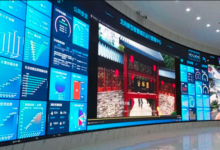Efficiency Unleashed: IT Services Transforming Logistics

Introduction
The logistics industry is the backbone of global trade, ensuring the smooth movement of goods from manufacturers to consumers. As supply chains become more complex, the demand for efficiency and reliability has never been higher. IT services are at the forefront of this transformation, offering innovative solutions that enhance efficiency, reduce costs, and improve customer satisfaction. This guide explores how IT services are revolutionizing logistics, highlighting key technologies and strategies that are driving this change.
The Role of IT Services in Logistics
IT services for logistics encompass a wide range of technologies and tools that are specifically designed to support and enhance logistics operations.
Enhancing Operational Efficiency
IT services streamline various logistics operations, from inventory management to transportation planning. Automation and data analytics enable logistics companies to optimize routes, reduce idle times, and manage resources more effectively.
Improving Accuracy and Reducing Errors
Technologies such as barcode scanning, RFID, and automated data entry minimize human errors, ensuring accurate tracking and handling of goods. This accuracy reduces the risk of misplaced shipments and inventory discrepancies.
Real-Time Tracking and Visibility
Advanced IT solutions provide real-time tracking of shipments, allowing logistics providers and customers to monitor the status and location of goods at any time. This transparency enhances trust and enables proactive issue resolution.
Cost Reduction
By optimizing processes and improving resource management, IT services help reduce operational costs. Predictive analytics can forecast demand and optimize inventory levels, reducing storage and transportation expenses.
Enhancing Customer Satisfaction
Efficient and transparent logistics operations lead to faster deliveries and better communication with customers. IT services enable personalized experiences, such as customized delivery options and real-time updates, enhancing overall customer satisfaction.
Key Technologies Transforming Logistics
Internet of Things (IoT)
IoT devices, such as smart sensors and GPS trackers, provide real-time data on the condition and location of goods. This technology enables proactive maintenance, reduces downtime, and enhances asset utilization.
Artificial Intelligence (AI) and Machine Learning
AI and Machine Learning algorithms analyze vast amounts of data to optimize routes, predict maintenance needs, and improve demand forecasting. These technologies enable more informed decision-making and enhance operational efficiency.
Blockchain
Blockchain technology ensures secure and transparent transactions, reducing the risk of fraud and enhancing trust among stakeholders. It provides an immutable record of shipments, improving traceability and accountability.
Cloud Computing
Cloud computing offers scalable and flexible IT infrastructure, enabling logistics companies to manage data and applications efficiently. It supports real-time collaboration and information sharing across the supply chain.
Big Data Analytics
Big Data Analytics processes and analyzes large datasets to uncover patterns and insights. It helps in demand forecasting, route optimization, and identifying inefficiencies, leading to better decision-making and improved performance.
Robotics and Automation
Robotics and Automation technologies, such as automated guided vehicles (AGVs) and warehouse robots, streamline repetitive tasks and enhance productivity. They reduce labor costs and minimize errors in handling goods.
Strategies for Implementing IT Services in Logistics
Conduct a Needs Assessment
Identify the specific needs and challenges of your logistics operations. Determine which areas can benefit the most from IT services and prioritize their implementation.
Choose the Right Technology
Select technologies that align with your business goals and operational requirements. Consider scalability, integration capabilities, and user-friendliness when evaluating IT solutions.
Invest in Training
Ensure that your staff is adequately trained to use new technologies. Provide ongoing training and support to maximize the benefits of IT services and encourage adoption across the organization.
Collaborate with IT Experts
Partner with IT service providers and experts who specialize in logistics. Their expertise can help you navigate the complexities of technology implementation and ensure successful integration.
Monitor and Evaluate
Continuously monitor the performance of IT services and evaluate their impact on your logistics operations. Use key performance indicators (KPIs) to measure efficiency gains, cost savings, and customer satisfaction improvements.
Embrace Continuous Improvement
Stay updated with the latest technological advancements and be open to adopting new solutions. Continuous improvement ensures that your logistics operations remain efficient and competitive in a rapidly evolving industry.
Transportation Management Systems (TMS)
Transportation management systems (TMS) are software solutions that enable logistics companies to optimize their transportation operations, including route planning, carrier selection, and freight cost management.
Case Studies: IT Services Transforming Logistics
DHL: Leveraging IoT and AI
DHL has integrated IoT devices and AI into its logistics operations to enhance visibility and efficiency. IoT sensors monitor the condition of sensitive shipments, while AI algorithms optimize delivery routes and predict maintenance needs. This integration has led to improved delivery times and reduced operational costs.
Amazon: Automating Warehouses
Amazon utilizes robotics and automation extensively in its warehouses. Automated robots handle tasks such as sorting, picking, and packing, significantly reducing labor costs and improving order fulfillment speed. Cloud computing and big data analytics further enhance inventory management and demand forecasting.
Maersk: Enhancing Security with Blockchain
Maersk, a global leader in shipping, has implemented blockchain technology to improve security and transparency in its supply chain. The blockchain-based platform ensures secure and tamper-proof documentation of shipments, reducing the risk of fraud and enhancing trust among stakeholders.
Conclusion
IT services are revolutionizing the logistics industry by enhancing efficiency, reducing costs, and improving customer satisfaction. Technologies such as IoT, AI, blockchain, and automation are driving this transformation, enabling logistics providers to optimize operations and deliver better services. By adopting these technologies and implementing effective strategies, logistics companies can unleash new levels of efficiency and remain competitive in a rapidly evolving market.






